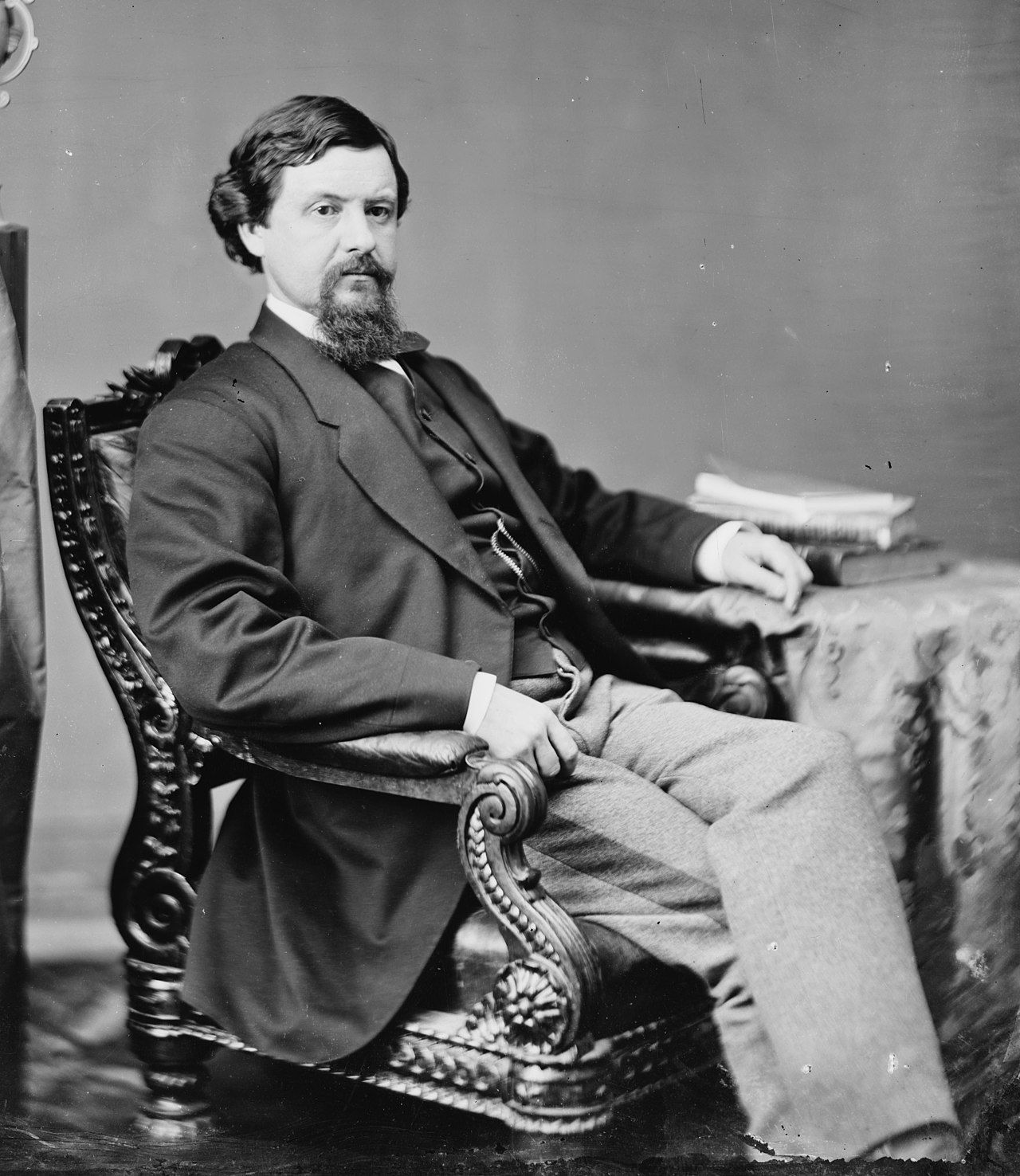Kevin McCarthy did this to himself

In a stunning — but not altogether unsurprising — turn of events, Kevin McCarthy was removed as speaker of the House on Tuesday. The vote was 216-210, with eight Republicans breaking against their leader. It is the only time in U.S. history that a House speaker has been ousted in the middle of their term.
In a combative press conference last night, McCarthy began the process of pointing fingers, which is likely to continue for the next few weeks. Naturally, he blamed Matt Gaetz, who triggered the vote that sparked McCarthy’s demise. Less explicitly, he blamed Nancy Pelosi and Hakeem Jeffries, the Democratic counterparts he served with. He blamed Nancy Mace, the mercurial moderate who joined the band of right-wing rebels. The list goes on.
But McCarthy has no one to blame for his sudden ouster but himself.
It has been clear for weeks now — and, in some ways, for McCarthy’s entire speakership — that his survival would eventually depend on Democrats.
I wrote last month that the only way for McCarthy to keep the government open and keep his gavel would be to work with Democrats on a continuing resolution and on averting a motion to vacate. The two agreements simply had to be a package deal, since the needed amount of Republicans had already promised not to support any CR and to oust McCarthy if he passed one. You didn’t have to be a former House Majority Whip to count this one.
But McCarthy refused to treat the two situations as connected, although they plainly were. He put a CR on the floor that was amenable to Democrats — but in a manner that seemed almost engineered to piss them off, not even giving them the 90 minutes they requested to read over the legislation. Once the measure passed with Democratic support, it was clear he would need the minority party to save his job, but he flatly refused to negotiate with them.
Instead, the job was left to McCarthy’s deputies, who “frantically” reached out to Democrats on Tuesday using the rationale that Democrats should save McCarthy because he was being ousted for working with them to avert a shutdown. Democrats might have been persuadable on those grounds, too — if only McCarthy himself hadn’t publicly denied that’s what had happened. Over the weekend, he went on CBS to claim that “Democrats tried to do everything they can” to force a shutdown, a comment that might have sealed his fate.
Take Democrat Matt Cartwright, for example, who represents a Pennsylvania district won by Trump in 2020: exactly the type of centrist Democrat McCarthy needed to keep the speakership. On Saturday, he told Fox News that McCarthy had done “the sensible thing” by keeping the government open, adding that he’d likely vote “present” on a motion to vacate (which would have helped McCarthy).
But then Democratic leaders played the CBS clip in their Tuesday caucus meeting. “After I saw Kevin McCarthy’s interview with Margaret Brennan, all magnanimity left my body,” Cartwright told a reporter.
As with his entire speakership, McCarthy gambled away any opportunity to gain goodwill with Democrats in pursuit of a right flank he was never going to win over.
Pretty soon, a gusher of Democratic grievances came back to haunt him: his vote against a January 6th commission he had once supported, his reneging on a spending deal with President Biden, his unilateral initiation of an impeachment inquiry after promising he’d hold a vote on it. “Kevin McCarthy...is a man without principle,” said Rep. Abigail Spanberger (D-VA), another moderate. “He is a man who cannot be trusted.”
By the time McCarthy tried appealing to Democratic patriotism — “This is about the institution,” he declared — it was already too late. He’d made his bed. And McCarthy never tried to offer concessions to win the minority party over, even when Democrats left the door open as late as Tuesday morning. “We are ready to find bipartisan common ground,” Jeffries said.
I’m focusing on how McCarthy lost the Democrats, some of whom were genuinely gettable, because, in my opinion, it was his best hope of staying speaker: he’d long ago lost the necessary Republicans. You could go back to the 15-round slog he went through to become speaker in the first place — but the writing was likely on the wall even before that.
McCarthy is merely the latest victim in the long cycle of abuse that Republicans heap upon their House leaders.
Think of Newt Gingrich, who came up through the ranks as a conservative rabble-rouser, only to be ousted as House speaker by his rabble. Or John Boehner, whose career began as an “agitating rebel” but ended at the hands of more rebellious successors. And now Kevin McCarthy, once one of the GOP’s vaunted “Young Guns” of the right, put out to pasture by many of the members he helped elect. (The other two “Young Guns,” by the way, were Eric Cantor and Paul Ryan, who met quite similar fates.) The cycle of abuse continues.
Although that isn’t to say McCarthy himself didn’t add to the existing problem. As on the Democratic side of the aisle, McCarthy’s fate ultimately came down to trust — and he lost it from the small group of Republicans he needed to stay in office.
To Gaetz and company, he had promised a more open amendment process — which never materialized — and votes on hardline bills that never made it to the floor. To Mace, in her telling, he promised votes on expanding access to birth control and rape kits. (In his press conference, McCarthy rejected these accounts. “I haven’t heard Gaetz say one true thing,” he said. “Nancy Mace is a whole other story,” he added at another point.)
The empty promises that McCarthy spent his whole speakership making — to anyone who would listen in the moment, just to get through the day — finally caught up to him.
At times, McCarthy lost the trust of both parties in one fell swoop, making contradictory promises to Democrats and Republicans on the same issues. During the initial speaker balloting, McCarthy inked a secret deal with his defectors, which reportedly included a pledge to cap federal spending at $1.47 trillion. Then, during the debt ceiling debacle, he shook hands with Biden on an agreement to cap spending at $1.57 trillion. But when the appropriations process actually began, fearful of risking conservative support, he went back down to the original levels. It was a masterclass in how to lose friends and allies on both sides.
This world-class schmoozer — famed for remembering the names of members’ pets and their kids’ birthdays — also failed, in the end, at the personal touch. Rep. Tim Burchett (R-TN) claimed that McCarthy was “condescending” to him after he told an interviewer that he would be “praying” about the speaker vote. “The Bible is pretty clear about God being mocked,” Burchett said, “so that’s what sealed it right there for me.” (Again, in his score-settling presser, McCarthy denied this allegation.)
McCarthy kept speaking out of both sides of his mouth to the end.
According to Punchbowl News, when McCarthy addressed a closed-door meeting of Republicans after the vote on Tuesday, he said that not seeking Democratic support had been an act of principle.
“I did it for the good of the conference,” he reportedly said. “The Democrats came to me to make a deal. I wasn’t going to make a deal.”
But in his press conference later that night, speaking before the cameras, McCarthy no longer seemed that averse to winning with Democratic votes. “The institution fell today,” he said, which he attributed to “a political decision by the Democrats.” He went on to bash Pelosi for not offering her support, claiming that she had promised to do so in her final days as speaker.
McCarthy did all he could to claim he wasn’t bitter, but he went on to settle several scores during the presser, knifing various members of both parties on his way out. He repeatedly claimed that he’d been underestimated, even as he lost his job in a historic fashion.
The ousted speaker also quoted Theodore Roosevelt’s “Man in the Arena” speech, one of his favorites, a salute to those who “come up short again and again,” as “there is no effort without error or shortcoming.”
After 21 years in professional politics — many of them in pursuit of the gavel he wielded for a mere nine months — Kevin McCarthy is leaving the arena.
What happens now?
McCarthy’s personal failings aside, governing the House Republicans is a genuinely difficult task, as evidenced by his predecessors. Can anyone pull it off? The GOP is about to find out.
Once McCarthy was voted out on Tuesday, the office of House speaker was declared vacant. Under a post-9/11 contingency measure, McCarthy had already designated an ally to temporarily take the gavel in the case of a vacancy: Rep. Patrick McHenry (R-NC) is now, for the time being, speaker pro tempore.
McHenry promptly recessed the House until next Tuesday, when Republicans will hold a candidate forum with anyone who chooses to run for the post permanently. A vote (or several votes, if necessary) will be held the next day.
The election could be a free-for-all. House Majority Leader Steve Scalise (R-LA), McCarthy’s No. 2, has already started gauging support. But some McCarthy allies are reportedly preparing to oppose him. Several Republicans, including Gaetz, have proclaimed support for House Judiciary Committee chairman Jim Jordan (R-OH). Plus, Republican Study Committee chairman Kevin Hern (R-OK) is “seriously considering” a run as well.
And then there’s former President Donald Trump, who one Republican has already said he’ll nominate. Rep. Marjorie Taylor Greene (R-GA) went so far as to say last night that Trump is the “only candidate” she’s currently supporting. Are you seeing why this might be difficult?
Here’s what’s next for some of the other characters at the center of this drama...
McCarthy: The former speaker announced last night that he will not run to reclaim his post, freeing up the race. He has not said if he will remain in Congress as a rank-and-file member. “I’ll look at that,” he said last night.
Gaetz: Some Republicans are discussing expelling Gaetz from the GOP conference.
Pelosi: McHenry ordered the former Democratic speaker to clear out her hideaway office last night, and did the same for her former top deputy Steny Hoyer.
The moderates: The bipartisan House Problem Solvers Caucus might not survive the speaker vote: several Republican members of the group are considering leaving en masse in protest of the Democratic members voting to oust McCarthy.
More news to know.

Tuesday was historic for at least two other reasons:
- A gag order was imposed against a former president. Judge Arthur Engoron, who is presiding over Donald Trump’s civil fraud trial in New York, forbade the ex-president from making public comments about his court staff. The move came after Trump posted a photo of Engoron’s clerk on Truth Social and falsely claimed that she was Senate Majority Leader Chuck Schumer’s “girlfriend.”
- A president’s son was arraigned. Appearing in federal court in Delaware, Hunter Biden pleaded not guilty to three felony gun charges. Biden has been charged with lying on a background check form to purchase a firearm, reporting to the federal government in October 2018 that he was not using drugs at the time (a statement he later contradicted in his memoir).
Like the mid-term ouster of a House speaker, neither of these things have ever happened in American history.
A few more headlines you should know about:
- Last month was the hottest September on record — by an “astonishing” margin.
- Kari Lake, the failed Arizona Republican gubernatorial nominee, has filed to run for Senate.
- The GOP’s polling edge on the economy is larger than at any point since 1991, per Gallup.
- Trump prosecutors have been asking about Rudy Giuliani’s drinking, the New York Times reports.
- The Federal Reserve is trying to go viral.
The day ahead.

Holding pattern in the House: Suddenly speaker-less, the lower chamber is now on recess until Tuesday.
Senate works on confirmations: The upper chamber, meanwhile, is set to vote on the confirmations of three Biden nominees: James C. O’Brien (to be Assistant Secretary of State for European and Eurasian Affairs), Brendan Abell Hurson (to be a U.S. District Judge for the District of Maryland), and Susan Kim DeClercq (to be a U.S. District Judge for the Eastern District of Michigan).
Biden talks student loans: President Biden will deliver remarks at 1 p.m. ET to announce that his administration has relieved an additional $9 billion in student loan debt through existing forgiveness programs. The news comes as federal student loan payments restarted this week for the first time in three years.
SCOTUS takes on an ADA “tester”: Deborah Laufer is a disabled woman from Florida who has filed more than 600 lawsuits accusing various companies of violating the Americans with Disabilities Act — even when she has no intention of using their services. Today, in Acheson Hotels v. Laufer, the Supreme Court will hear arguments on whether Laufer has standing to bring such cases, a dispute that could have consequences for other self-appointed “tester” litigants.
Remembering DiFi: Ahead of her funeral tomorrow, the late Sen. Dianne Feinstein (D-CA) will lie in state at San Francisco City Hall from 12 p.m. to 10 p.m. ET.
Heads up: Don’t be worried if your phone starts blaring at around 2:20 p.m. ET today: it’ll only be a drill. FEMA and the FCC are testing the nation’s emergency alert system.
Before I go...

Here’s a fun fact you can share with your friends: Kevin McCarthy may have only lasted 270 days as speaker of the House, but he won’t take the record for shortest speakership. In fact, two previous House speakers had shorter tenures:
- Theodore Pomeroy, a New York Republican, who held the House gavel for a single day: March 3, 1869. It was the last day of the 40th Congress, and the sitting speaker, Schuyler Colfax, was resigning to become vice president. Pomeroy, who was retiring from Congress the next day, was unanimously chosen by his colleagues to serve as speaker for the session’s — and his — final day. (Bonus fun fact: Pomeroy is related by marriage to the Dulles family, of foreign policy (and airport) fame. His granddaughter married John Foster Dulles, the future Secretary of State).
- Michael Kerr, an Indiana Democrat, who served from December 1875 to August 1876. At 275 days, his tenure was barely shorter than McCarthy’s — although it was cut short for very different reasons, ending when Kerr died of tuberculosis, then known as consumption.
There are always worse ways to go.
Thanks for reading.
I get up each morning to write Wake Up To Politics because I’m committed to offering an independent and reliable news source that helps you navigate our political system and understand what’s going on in government.
The newsletter is completely free and ad-free — but if you appreciate the work that goes into it, here’s how you can help:
- Donate to support my work or set up a recurring donation (akin to a regular subscription to another news outlet).
- Buy some WUTP merchandise to show off your support (and score a cool mug or hoodie in the process!)
- Tell your family, friends, and colleagues to sign up at wakeuptopolitics.com. Every forward helps!
If you have any questions or feedback, feel free to email me: my inbox is always open.
Thanks so much for waking up to politics! Have a great day.
— Gabe
